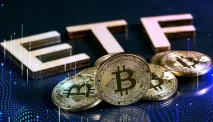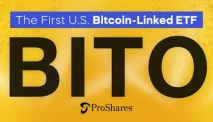Solana also supports smart contracts, which are self-executing agreements that run on the blockchain and enable various applications such as DeFi, gaming, NFTs, and more. Solana claims to be the fastest smart contract platform in the world, with over 400 projects built on its ecosystem.
Who Are the Founders of Solana?
Solana was founded by Anatoly Yakovenko and Raj Gokal in 2018. Yakovenko is a former software engineer at Qualcomm and Dropbox who came up with the idea of PoH after observing how GPS satellites use timestamps to synchronize data across a large network. Gokal is a former product manager and COO at various startups who oversees the business operations and strategy of Solana.
The Solana team also includes other experienced engineers and entrepreneurs from companies such as Google, Apple, Microsoft, Twitter, Intel, and more.
Why is Solana Important?
Solana is important because it aims to solve one of the biggest challenges facing blockchain technology: scalability. Scalability refers to the ability of a network to handle a large number of transactions without compromising speed, security, or decentralization. Many existing blockchains struggle with scalability issues, as they often face trade-offs between these three factors.
For example, Bitcoin can only process about 7 transactions per second with an average fee of $10 USD and a block time of 10 minutes. Ethereum can process about 15 transactions per second with an average fee of $20 USD and a block time of 13 seconds. These limitations make it difficult for these networks to support mass adoption and mainstream use cases.
Solana claims to overcome these limitations by using PoH and other innovations such as parallel processing, pipelining, compression, and more. By doing so, Solana hopes to enable a new wave of applications that can leverage the benefits of blockchain technology without sacrificing performance or user experience.
What Makes Solana Unique?
Solana is unique because it combines several features that make it stand out from other blockchain platforms. Some of these features are:
- Proof-of-History: A cryptographic clock that timestamps transactions before they are validated by the PoS consensus. This allows Solana to achieve high throughput and low latency without relying on a centralized authority or coordinator.
- Proof-of-Stake: A mechanism that secures the network by requiring validators to stake SOL tokens as collateral. Validators earn rewards for producing blocks and validating transactions, while losing their stake if they act maliciously or go offline.
- Sealevel: A parallel smart contract engine that enables multiple smart contracts to run simultaneously on different hardware threads without interfering with each other. This maximizes the utilization of the network’s computational resources and improves scalability.
- Turbine: A block propagation protocol that breaks down large blocks into smaller packets and distributes them across the network in a peer-to-peer fashion. This reduces bandwidth requirements and latency for validators and nodes.
- Gulf Stream: A mempool-less transaction forwarding protocol that allows validators to cache and stream transactions to the edge of the network, where they are executed before the next block is produced. This eliminates the need for mempools, which are often a source of congestion and high fees on other networks.
- Cloudbreak: A horizontally scalable data structure that organizes accounts and contracts into columns and rows, allowing for fast and concurrent reads and writes. This enhances the performance and capacity of the state storage.
- Archivers: A network of nodes that store historical data of the blockchain and provide proofs of its validity. This enables Solana to offload data from validators and nodes, reducing their storage and memory requirements.
What are the key features of Solana?
Some of the key features of Solana are:
- Fast: Solana can process over 50,000 transactions per second with a block time of 400 milliseconds, making it one of the fastest blockchain platforms in the world.
- Cheap: Solana has an average transaction fee of $0.00025 USD, which is significantly lower than most other networks. This makes Solana accessible and affordable for users and developers alike.
- Secure: Solana uses a combination of PoH and PoS to secure its network, ensuring that transactions are immutable and resistant to censorship or tampering. Solana also employs various cryptographic techniques and encryption standards to protect user data and privacy.
- Scalable: Solana is designed to scale with Moore’s Law, which states that the number of transistors on a chip doubles every two years. This means that as hardware gets faster, so will Solana. Solana also supports interoperability with other blockchains through bridges and protocols such as Wormhole, which allows for cross-chain transfers of tokens and data.
- Flexible: Solana supports various programming languages and frameworks for smart contract development, such as Rust, C, C++, TypeScript, Solidity, and more. Solana also offers a rich set of tools and libraries for developers to easily build and deploy applications on its platform.
Solana History
How did Solana come about?
Solana came about as a result of Yakovenko’s vision to create a blockchain platform that can scale to meet the demands of the modern internet. He was inspired by his experience working at Qualcomm, where he learned how to optimize wireless networks using radio technology. He applied this knowledge to blockchain technology and developed the concept of PoH as a way to synchronize a distributed system without relying on a central clock.






